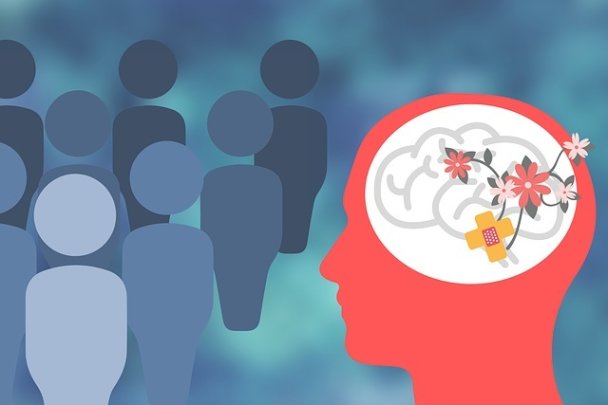A subject as diverse as psychology is not just interesting but a great addition to the course. However, many students find it a rather difficult subject.
You have to study several concepts, definitions, history, and a whole lot more on the social, cognitive, and biological arenas in Psychology. Now having little or no background on the subject can make it a whole lot difficult for the students.
While we cannot reduce the workload, we can definitely work on our study habits to ace straight As in the course.

So, here are some strategies you can follow at home and school that’ll help.
Table of Contents
Study the Basics
When studying psychology – or any other course for the matter – avoid the temptation to dive straight to the questions.
The best practice is to learn about the basics first. This way, it will be easier for you to grasp the difficult topics later on. The basics here include history and other fundamental concepts.
Stay Active
There’s no magical way to memorize a concept. So you cannot just read a book or a concept and expect to retain it completely later on.
You need to revise it and not once but many times, and make a habit of taking notes, underlining, and highlighting the main concepts as you read through. This will help you skim through quickly and recall the topic faster in the future.
Also, in psychology, you don’t just have to read and learn; you need to do some critical thinking too.
- Question the theories and make your own analysis of the case studies.
- Think of real-life scenarios and apply what you’ve studied to them.
That way, it’ll be easier to memorize and recall the concepts before the exam.
Study at Home
Reading your books and notes at home will also help you in staying active in class. As you jot down the key points while studying, you can also write questions or highlight things you don’t understand.
That way, you can ask, discuss or clarify the concepts during class and become an active participant in the class.
Take Notes During Class
Make sure to pen down the key points during a lecture. That’ll help you stay alert – and awake – during class. In addition, your study will be more organized and planned this way.
Plus, such notes also help when you study the topic in-depth later on. Remember, if your professor discussed it in class, it’s most likely to appear in your exam.
Study Regularly
Make studying a regular thing. You cannot just sit and memorize everything in one go. Memory develops over time, and this works best when you make it a regular practice.
So what you can do is, fix a time for the studies. Make a schedule and stick to it. It doesn’t have to be much; even two to four hours a week – or whatever works for you – spent studying can do wonders.
In fact, even ten to fifteen minutes dedicated entirely to the subject will really help.
Use Flashcards
A simple yet very effective technique to learn new concepts is by using flashcards.
You can use the cards for learning simple things like new words, definitions, etc., and even complex questions. The flashcard technique is more like an on-the-go way of learning. You can look up these cards literally anywhere and at any point in time.
So use more of these for questions and pointers you need to remember. You can also set a time to read these or a daily target like learning five to ten cards a day for the best results.
Test Yourself
Test practice is a great way to work up your knowledge and get your mind to do some critical thinking. You can
- Practice multiple choice questions, broad questions and answers, case studies, etc.
- Do the exercises given in your coursebook.
Solving past papers, too, is another great way to assess yourself.
Self-study
Studying on your own gives you a chance to focus on the subject and assess your knowledge. It is very important first to analyze how well you know the material.
In this way, you can also highlight areas you need more clarity and discuss those with your group mates or professor.
Study in Groups
Once you’ve studied the topic, you can form a group or sit with your classmates to review the material.
This way, you will find better answers to the concepts or topics you need help with. Discuss, brainstorm, and analyze the whole study. The more the ideas, the better.
Hire a Tutor
If you still need help, you can always find a tutor to assist you at home. However, it’s not quite easy to find someone whose schedule matches yours. Fortunately, you can find some online tutors to help you study – in your comfort zone – whenever you have the time.
How to Study History
Most students find history rather boring and dry. But, unfortunately, A-Levels Psychology includes a lot of studies and history. So it may get overwhelming and a bit too much to absorb at once.
So to learn and retain history, break down the topic into different parts or headers. Here’s a list that’ll help:
- Date
- Name of Psychologist/ author
- Goal
- Research methodology
- Deduction
- Conclusion
Once you memorize these key headings, you will be better able to memorize the whole topic.
Next, if you are pressed for time, just focus on the broader studies. So you can apply the concept to a variety of topics rather than just one.
After that, you need to analyze the study. Look at all the aspects critically rather than just memorizing and stating them. That way, it will not just be easier to learn, but you’ll also be able to apply it relevantly and hence, score better than your peers.
Tips and Tricks
Here are some additional tips and tricks to help you stay focused and score better:
- Flashcards are a very helpful tool for memorizing spellings and definitions.
- Taking breaks is important. Make sure to get up, stretch a bit or eat something after every hour.
- Work on your writing skills. This will be very useful for drafting research papers, case studies, etc.
- Look up and join on-campus research projects/ experiments.
- Hire an A-Level Psychology tutor to help you study.
- Volunteer to be part of your professor’s research projects. That’ll give you first-hand experience of real-life situations, and you’ll learn how to apply various concepts accordingly.
- Don’t forget to sleep! Make sure you are getting six to eight hours of adequate sleep every day.
- Do not cram up at the last minute before the exam. Instead, use class notes to revise the main concepts.
Conclusion
So, it’s not too difficult to score well in your A- levels Psychology exam. You just need a solid study plan and stick to it.
Remember, practice makes perfect, so make sure to revise and do the exercises every chance you get. That way, by the time you have your finals, you’ll get hands-on with the topics.
So just plan ahead today to avoid the stress and anxiety before the exam. Best of luck!




